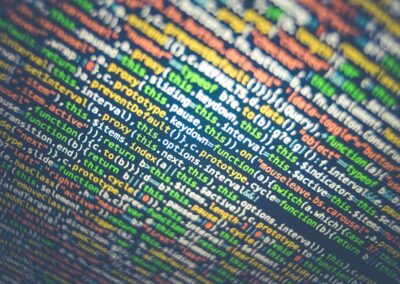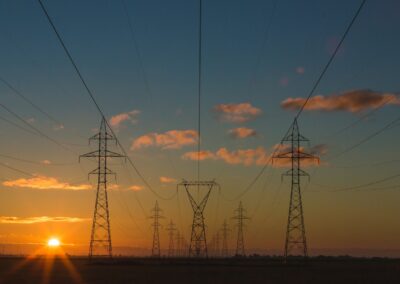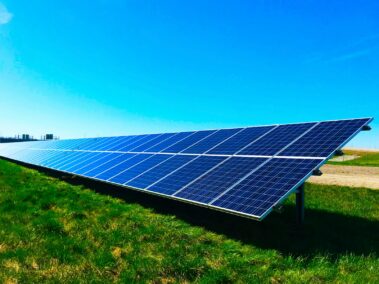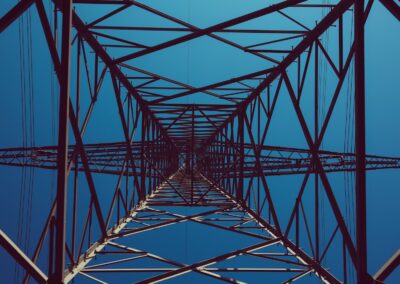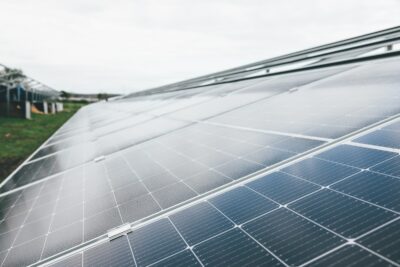Enhancing Security and Integrity of Transactions and Data
Introduction to Blockchain in Energy and Utility Systems
Blockchain technology in energy and utility systems can enhance the security and integrity of transactions and data, offering unprecedented transparency and efficiency. As business executives, mid-level managers, and entrepreneurs explore innovative solutions to modern challenges, the integration of blockchain in sectors like energy and utilities stands out as a transformative approach. This article delves into how blockchain can revolutionize energy systems in regions such as Saudi Arabia, UAE, Riyadh, and Dubai, aligning with their vision of becoming technological and economic powerhouses.
Blockchain, originally designed for cryptocurrency transactions, has evolved into a robust technology that ensures secure, immutable records of transactions. In the energy sector, this means that every transaction, from energy production to consumption, can be recorded with high accuracy and transparency. This level of precision is crucial for regions heavily investing in renewable energy and smart grid technologies, ensuring that all stakeholders can trust the integrity of the data and the security of the transactions.
Moreover, blockchain’s decentralized nature mitigates the risk of single points of failure, which is vital for maintaining the stability and reliability of energy and utility systems. As these regions continue to expand their infrastructure and embrace smart city initiatives, blockchain technology can provide the foundational security needed to support these advancements.
Enhancing Data Security and Integrity
The implementation of blockchain technology in energy and utility systems significantly enhances data security and integrity. In traditional systems, data can be susceptible to tampering, errors, or unauthorized access, posing severe risks to operational efficiency and trust. Blockchain addresses these issues by creating a decentralized ledger where data is stored in blocks that are cryptographically linked, making it nearly impossible to alter past records without detection.
In the context of energy and utilities, this level of security is particularly beneficial. For instance, smart meters and IoT devices generate vast amounts of data that need to be accurate and tamper-proof. Blockchain ensures that the data collected from these devices is secure and reliable, enabling more efficient energy management and billing processes. This is crucial for regions like the UAE and Saudi Arabia, where the integration of advanced technologies is pivotal for economic diversification and sustainable growth.
Additionally, blockchain enhances data integrity by providing a single source of truth. In complex energy ecosystems involving multiple stakeholders, from producers to consumers, maintaining consistent and accurate data is essential. Blockchain’s immutable ledger ensures that all parties have access to the same information, reducing discrepancies and fostering greater collaboration and trust.
Improving Transaction Security and Transparency
Blockchain technology not only secures data but also improves the security and transparency of transactions within energy and utility systems. Traditional transaction systems can be prone to fraud, delays, and high operational costs due to intermediaries. Blockchain streamlines these processes by enabling peer-to-peer transactions that are verified and recorded on the blockchain, eliminating the need for intermediaries and reducing the potential for fraud.
For energy trading, this means that transactions can be conducted more efficiently and transparently. In regions like Dubai and Riyadh, where energy trading is becoming increasingly sophisticated, blockchain can facilitate secure and transparent energy exchanges between producers, consumers, and grid operators. This not only enhances market efficiency but also builds trust among participants, encouraging more active participation and innovation in the energy sector.
Furthermore, blockchain enables the creation of smart contracts, which are self-executing contracts with the terms of the agreement directly written into code. In energy and utilities, smart contracts can automate various processes, such as billing, energy distribution, and maintenance schedules, based on predefined conditions. This automation reduces the risk of human error and enhances operational efficiency, contributing to the overall reliability and resilience of energy systems.
Case Studies and Real-World Applications
Several real-world applications and case studies highlight the potential of blockchain technology in energy and utility systems. One notable example is the Dubai Blockchain Strategy, which aims to transform Dubai into the first city fully powered by blockchain by 2020. This ambitious initiative involves implementing blockchain across various sectors, including energy, to improve efficiency, transparency, and security. The strategy has already led to significant advancements in smart grid technologies and renewable energy integration, setting a benchmark for other regions to follow.
In Saudi Arabia, the adoption of blockchain technology is aligned with the Vision 2030 initiative, which aims to diversify the economy and reduce dependency on oil. By integrating blockchain into its energy sector, Saudi Arabia is enhancing its renewable energy capabilities and ensuring that the data and transactions involved are secure and transparent. This not only supports sustainable development but also attracts foreign investments by showcasing the country’s commitment to technological innovation and cybersecurity.
Another example is the use of blockchain in peer-to-peer energy trading platforms. These platforms enable consumers to buy and sell excess energy directly from each other, bypassing traditional utilities. Blockchain ensures that these transactions are secure, transparent, and efficient, promoting greater adoption of renewable energy sources. In the UAE, such platforms are being explored to support the country’s ambitious renewable energy targets and foster a more decentralized and resilient energy grid.
Challenges and Future Outlook
Despite its numerous benefits, the integration of blockchain technology in energy and utility systems also presents challenges. One of the primary challenges is the scalability of blockchain networks. As the number of transactions increases, the blockchain network can become slower and less efficient. Addressing this challenge requires ongoing research and development to enhance the scalability and performance of blockchain technology.
Another challenge is the regulatory landscape. The adoption of blockchain technology in the energy sector involves navigating complex regulatory frameworks that vary across regions. Ensuring compliance with these regulations while leveraging the full potential of blockchain requires collaboration between policymakers, industry stakeholders, and technology providers.
Looking ahead, the future of blockchain in energy and utility systems is promising. With continuous advancements in blockchain technology and growing awareness of its benefits, more regions are likely to adopt blockchain to enhance the security and integrity of their energy systems. For Saudi Arabia, UAE, Riyadh, and Dubai, blockchain represents a strategic tool for achieving their technological and economic goals, fostering innovation, and ensuring sustainable development.
Conclusion
Blockchain technology offers significant potential for enhancing the security and integrity of transactions and data within energy and utility systems. By addressing key challenges such as data security, transaction transparency, and operational efficiency, blockchain can transform the energy sector in regions like Saudi Arabia, UAE, Riyadh, and Dubai. As these regions continue to embrace modern technology and drive economic growth, the integration of blockchain will be instrumental in achieving sustainable, secure, and efficient energy systems.
#Blockchain #EnergySecurity #UtilitySystems #DataIntegrity #ModernTechnology #BusinessSuccess #SaudiArabia #UAE #Riyadh #Dubai #ArtificialIntelligence #Blockchain #TheMetaverse #ExecutiveCoaching #GenerativeAI #Leadership #Management #ProjectManagement


